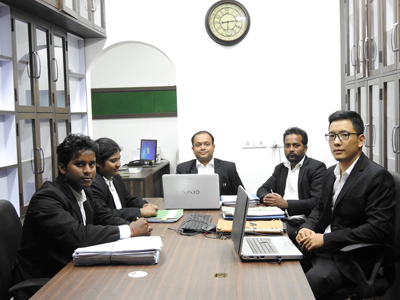Ashok Aggarwal, Advocate started his legal career as a trade-union representative in labour courts in 1969. After acquiring a formal degree in Law in 1976 and being enrolled with the Bar Council of Delhi, he continued his practice in labour law and gradually added more dimensions to it. With time, service law and education law became his professional forte. He is a pioneer in education law and has contributed immensely not only to implementation of education law but to its development itself. His major achievements in the field of education, to name a few, include abolition of interviews of tiny-tots and their parents for admission to private unaided schools, evolution of transparent admission criteria in private unaided recognized schools, to afford to differently abled children their just and equal status in schools, High-Court directions for appointment of special educators in all Delhi Government, MCD and private unaided recognized schools and fee-regulation in private unaided schools. In service law, he has the distinction of securing pay-parity with governmental employees (implementation of Pay-Commission recommendations) to employees of dozens of private unaided schools so far and successfully fighting legal battles of many employees of public undertakings and private unaided schools aggrieved of irregular and unjust disciplinary action.
Having traversed in diverse branches of law, he felt the need of using his professional skills to advance the just causes of public interest and started filing Public Interest Litigations in the Courts on diverse issues, 1982 onwards. However, issues pertaining to rights to education and health have acquired maximum attention and focus in his work for the society and he continues to work in the field of effective implementation of right to education and recognition, development and implementation of right of public health. He has been addressing issues of right to education of widest dimensions, from the quality of education in government schools to banning of corporal punishment, from rights of people belonging to disadvantaged sections and economically weaker sections in private schools to prevention of commercialization and quantum of fee in private schools and so on. His approach has been one of taking ‘court-to-people’ and ‘people-to-court’. He has been trying to become the link between those who are not aware of their rights or do not have access to courts on one hand and the courts of law on the other. At the same time, he has been trying to identify the beneficiaries of social welfare legislations and reaching out to them in order to make them aware of these rights and avail of the same. He has secured enforcement of obligations of free education to EWS category of private unaided schools in Delhi situated on public land and analogous obligations of free treatment of private-hospitals on public lands in Delhi, through PILs. He is also a member of Delhi High Court-appointment EWS treatment Monitoring Committee.

Lorem ipsum dolor sit amet, consectetur adipiscing elit, sed do eiusmod tempor incididtion ullamco luptate velit esse fugiat nulla pariatur.

criminal law

divorce law

divorce law

divorce law